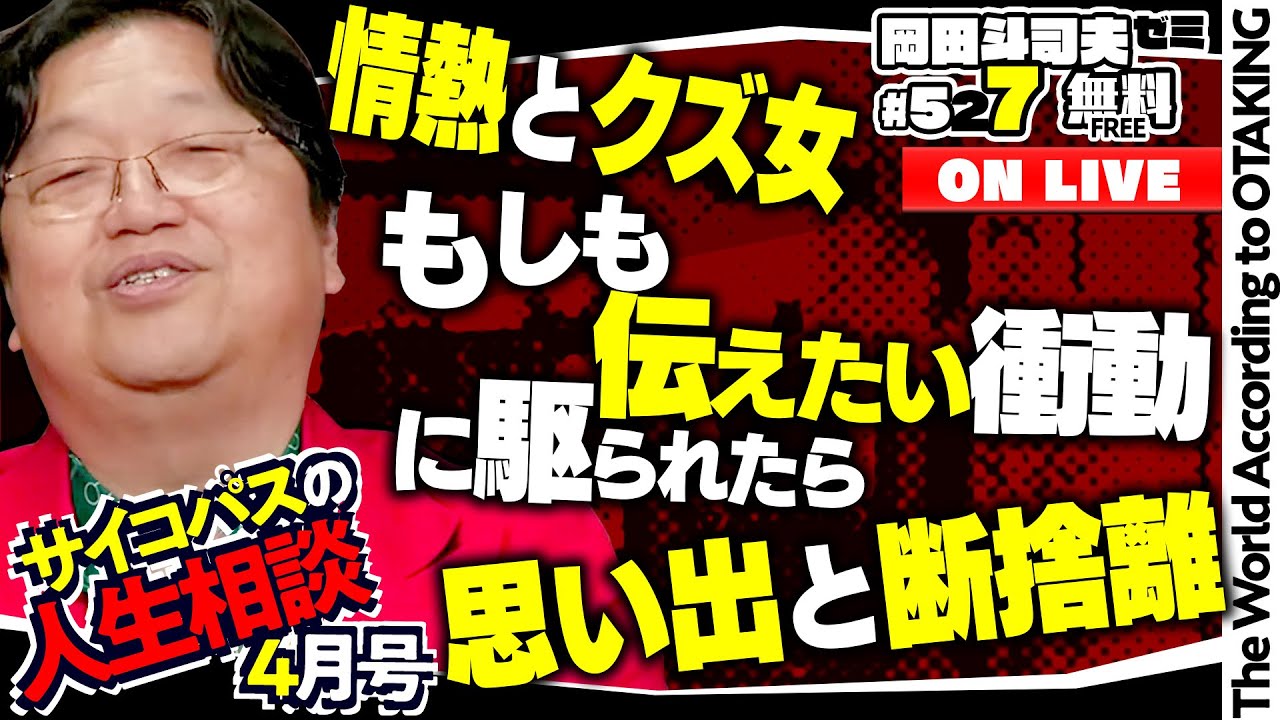Zeke Hernandez on "The Takeout" | June 9, 2024
Summary
TLDRこの動画は、移民問題についての深い洞察を提供しています。司会者は、事実がいかに重要であるかを強調し、移民に関する誤解や固定観念を解き明かそうとしています。ゲストのZeke Hernandezは、自身の移民としての経験と、経済学者としての知識をもとに、移民が社会や経済に与えるポジティブな影響について語ります。特に、移民がイノベーションや投資を促進し、犯罪率が低いことを示すデータを共有します。動画は、移民が社会に与える真の影響についての理解を深め、現行の移民政策への批判的な視点を提供します。
Takeaways
- 📚 「移民についての真実」という本の著者、Zeke Hernandezは、移民が経済に与える影響を研究しているビジネス教授であり、ウルグアイ出身の移民であることが明かされます。
- 🌟 Zeke Hernandezは、アメリカに留学するために22年以上前に来たが、移民研究者になる予定はなかったと述べ、経済繁栄の研究を通じて移民の重要性を認識したと語ります。
- 🔍 移民に対する2つの誤解:「悪人説」と「被害者説」が存在すると指摘され、事実に照らしてどちらも誤っていることが強調されています。
- 🚀 移民は経済、文化、社会的な成功に寄与しており、経済的に見ると「勝ち組」と見なすことができます。
- 🏛️ アメリカの初期移民政策は開放的で、1850年頃までは出身地を問わず誰でも移民ができました。
- 📉 1920年代に移民制限が始まり、特に南欧や東欧からの移民が大幅に減少し、アメリカの経済にも影響を与えたと記載されています。
- 🛑 1965年の移民法改正で、国別の枠組みが廃止され、アジアやラテンアメリカからの現代の移民波が始まりました。
- 🏦 移民はビジネス創設率が高く、投資を誘致し、発明にも貢献していることが強調されています。
- 🚑 移民、特に無証移民の犯罪率は低く、アメリカの安全を高める要因であることが示されています。
- 💰 移民は平均して税金にポジティブな貢献をしており、長期的には経済的にも利益をもたらすとされています。
- 🚨 現在の移民討論の状況は、移民自己だけでなくアメリカの利益にも有害であるとZeke Hernandezは警告しています。
Q & A
Zeke Hernandezはどのような経歴を持っていますか?
-Zeke Hernandezはウルグアイ出身で、ビジネス教授としてWharton Schoolで約11年間勤務しています。彼は経済、特に移民が経済に与える影響を研究しており、アメリカに留学した後、アメリカに滞在しています。
移民が経済に与える影響についてのZeke Hernandezの見解とは何ですか?
-Zeke Hernandezは、移民が経済にポジティブな影響を与えると主張しています。彼は移民が投資、ジョブ創出、イノベーションに寄与すると述べています。
移民に対する一般的な誤解には何がありますか?
-一般的な誤解としては、移民が職業を奪う、文化を台無しにしたり、犯罪を増加させるとされている「悪者ナラティブ」と、移民が私たちに依存し、高額なコストをもたらす「犠牲者ナラティブ」があります。
移民がアメリカに与える経済的利点には何がありますか?
-移民はアメリカに投資をもたらし、ビジネスを展開し、新しいジョブを作成することができ、経済繁栄に寄与しています。また、移民は発明家として多数の特許を出申請しており、アメリカのイノベーションにも寄与しています。
移民と犯罪の関連性についてのZeke Hernandezの見解は何ですか?
-Zeke Hernandezは、実際には無ocumented移民が犯罪率が最も低いグループであると指摘しています。アメリカ本土の住民よりも、移民の方が犯罪を犯す割合が低いとされています。
移民がアメリカの文化に与える影響についてどう言われていますか?
-移民はアメリカの文化にも貢献しており、食品業界においても新しい食べ物を導入することで、アメリカの食文化を豊かにしています。
アメリカの移民歴史における1924年の移民法とは何ですか?
-1924年の移民法は、アジアからの移民を禁止し、南欧や東欧からの移民を事実上ほぼ禁止する法的制限を設けたものです。これは当時の優生学の思想に基づいており、人種間の差別的な扱いを正当化するものでした。
1965年の移民法改正の意義は何ですか?
-1965年の移民法改正は、1965年以前の人種差別的な国籍クォータ制度を廃止し、移民の数を増加させることができました。これは現代の多様な国籍からの大規模な移民の流れをもたらしました。
現在のアメリカの移民状況について教えてください。
-現在、アメリカには法的に承認されていない移民も多く、彼らは経済に貢献していますが、政治的な問題や法的保護が不十分な状況にあります。
移民がアメリカの経済に与える影響についてのZeke Hernandezの研究の結論は何ですか?
-Zeke Hernandezの研究によると、移民はアメリカの経済にポジティブな影響を与えており、経済的、文化的、社会的に勝ち組と負け組のゼロサムゲームではなく、ウィンウィンの関係があると結論付けています。
移民と公的な費用の関係についてどう説明されていますか?
-移民は短期的には教育や保健などのコストを増加させる可能性がありますが、長期的には彼らは税金として大きなプラスの貢献をしており、社会保険や医療保険などの制度に対する負担を軽減することができます。
移民法の歴史的な誤りについてどう言われていますか?
-移民法の歴史的な誤りは、1920年代の制限によってアメリカ経済に大きな損害を与えたことが指摘されています。移民の減少により、特許出願の減少や投資の減少が生じ、アメリカの経済的自己利益に悪影響を及ぼしたとされています。
移民がアメリカ社会に与えるポジティブな影響について具体的に例を挙げてください。
-移民はアメリカ社会に多様な文化をもたらし、食文化においても新しい食べ物を紹介しています。例えば、移民によってもたらされた食品は、スーパーマーケットの食品コーナーを豊かにしています。
移民とアメリカの経済成長の関係についてどう説明されていますか?
-移民はアメリカの経済成長に寄与しており、新しいビジネスの創出やジョブ創出、イノベーションの促進など、経済の多面にポジティブな影響を与えています。
移民法改正の重要性についてどう言われていますか?
-移民法改正は、アメリカの経済的自己利益を守るために重要なとされており、現在の移民の「スピード制限」が低いため、より多くの移民を適切な方法で迎えることが求められています。
移民がアメリカの社会に与える影響についてのZeke Hernandezの結論は何ですか?
-Zeke Hernandezは、移民がアメリカの社会にポジティブな影響を与えており、経済的、文化的、社会的に勝ち組と負け組のゼロサムゲームではなく、アメリカの繁栄に寄与していると結論付けています。
Outlines

This section is available to paid users only. Please upgrade to access this part.
Upgrade NowMindmap

This section is available to paid users only. Please upgrade to access this part.
Upgrade NowKeywords

This section is available to paid users only. Please upgrade to access this part.
Upgrade NowHighlights

This section is available to paid users only. Please upgrade to access this part.
Upgrade NowTranscripts

This section is available to paid users only. Please upgrade to access this part.
Upgrade NowBrowse More Related Video

【井川意高vs暇空茜/闇クマ/大椿】Xでボロクソ!?論争したけどちょっとメンヘラでした。有本さんや百田さん、猫組長にも喧嘩をふっかけてきていた①【洋一の部屋】高橋洋一 ✕井川意高(元大王製紙会長)

Amazonプライム フォールアウトが面白い 「夫の大量の思い出の品を捨てたい妻」「理解としゃべり場」岡田斗司夫ゼミ#527(2024.4.14)サイコパスの人生相談4月号

【テーマ横断】成田悠輔が考える「社会問題」| イッキ見で学ぶ天才博士の視点【フル字幕/発言集/格差/社会保障/貧困/子育て/DX】

日本の外国人への対応 寛容さは美徳ではない / 欧州の極右と言われている人たちは自国を護ろうと回帰しているだけ 日本も省みるべき【渡邉哲也Show】20240705-567 Vol.2

How to build a successful tech startup according to Paypal founder Max Levchin

【マーケター西口一希】なぜ成長が止まるのか/顧客を見失う「3つのパターン」/マス思考に陥るな/スタートアップの壁は社員数100〜300人/ロイヤルカスタマーの中に真実がある/20代でミニ社長を経験せよ
5.0 / 5 (0 votes)
